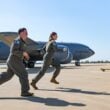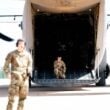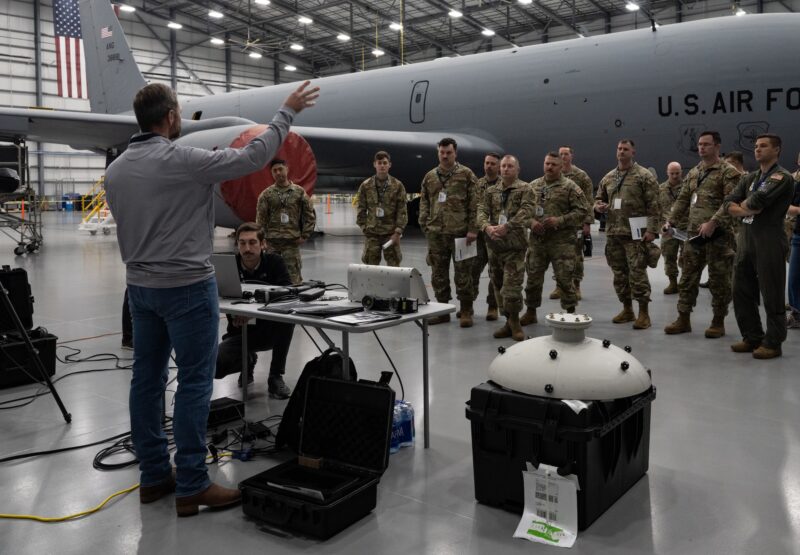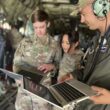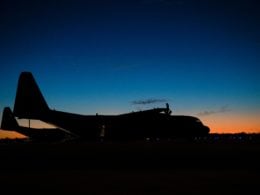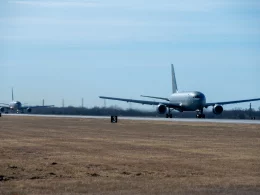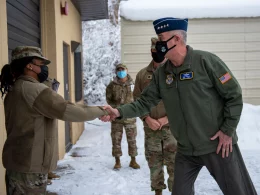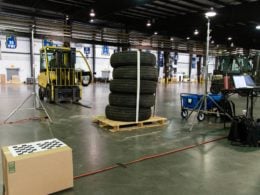MCCONNELL AIR FORCE BASE, Kan. —
As the Air Force continues to reshape, refocus and reoptimize to deter and prevail during the Great Power Competition, innovation and sustainability have become critical in reaching that goal.
With that in mind, Air Mobility Command formed a partnership with the National Center for Manufacturing Sciences (NCMS), Wichita State University’s National Institute for Aviation Research (NIAR), and U.S. Transportation Command (USTRANSCOM) to study, develop and test innovations to improve efficiency and cost-effectiveness to maintain the KC-135 fleet. The group collaborated to form the Sustainment Technologies, Research and Automation for Transformative Operations Testbed (STRATO-T), which provided a retired KC-135 for outside agencies to test their capabilities and compatibility with the aircraft.
As a part of this initiative, NCMS, NIAR and AMC hosted an inaugural demonstration exercise on the KC-135 called STRATO-Tech April 15-26 in Wichita.
“The goal of STRATO-Tech is to advance maintenance technology for our KC-135 fleet, ensuring they remain operationally effective and ready to meet the demands expected in Great Power Competition,” said Maj. Gen. David Sanford, AMC director of logistics, engineering and force protection. “By leveraging innovative technologies and collaboration, we aim to enhance the reliability, efficiency and safety of our maintenance processes to provide the speed, agility and survivability needed to successfully operate in a contested environment.”
STRATO-Tech focused on quick-turn initiatives and air battle damage repair (ABDR). Nineteen outside agencies showcased their technology in response to several scenarios provided over the week, such as hot-pit refueling, structural damage and rapid maintenance inspections.
“This is meant for a more interactive demonstration. Bring and use the technology, show the Airmen how to use those capabilities on the KC-135 platform,” said Greg Kilchenstein, NCMS chief technologist. Making that airplane accessible is the key. Nothing beats being actually on it, putting your hands on it, and taking your capability and trying to use it on that platform.”
Since its introduction in the late 1950s, the KC-135 has been the backbone of the air refueling mission. As the oldest airframe still operating in the Air Force fleet, it has provided refueling readiness and war capability during the Cold War, Vietnam War, Operations Desert Shield/Storm, Northern/Southern Watch, Allied Force, Iraqi/Enduring Freedom and beyond.
“Events like this, specifically with the KC-135, are going to enable us to project power and rapid global mobility across the globe,” said Maj. Edwin Cruz, AMC policy and compliance branch chief. “Events like this are helpful to keep the 135 relevant and a critical asset in the fight and enabling us to expand our fighter power.”
Affordable sustainment is an ongoing challenge in the Air Force, and innovative technology can accomplish the same goal faster and more efficiently.
“We love to talk about acquisition, we love to talk about new weapons systems, but we defend the country with things we own now,” Kilchenstein said. “The things we own and operate now don’t do us any good if they’re not ready to execute a mission.”
The collaborative minds behind STRATO-T plan to make STRATO-Tech an annual or twice-a-year event with the expectation that it will grow beyond what it accomplished in its first year and ensure outside agencies know a KC-135 is available to them.
“Seeing everybody here, seeing the products in action, being able to discuss with engineers and manufacturers their products and how they work has been awesome,” said William Colavolpe, NIAR program manager. “I think it’s opened the eyes of many manufacturers in the industry that this aircraft exists, where it exists and how to gain access to it.”
As STRATO-Tech continues to grow, AMC, NCMS, NIAR and USTRANSCOM are looking to implement a similar testbed for other Air Force assets.
“We’ll get to a certain place where we won’t pivot from the KC-135 but we’ll add some sort of fighter-bomber, a different kind of airlift aircraft or even unmanned,” Kilchenstein said. “They all have their own idiosyncrasies or things to consider while we try to sustain and improve their lifespan.”
The Air Force is shifting the way it projects power and provides deterrence worldwide. Strato-tech is just the beginning of what the future of sustainment and readiness will look like.
“I’d like to emphasize the critical role that initiatives like STRATO-Tech and the commitment and dedication of our industry partners plays in maintaining our Air Force’s technological edge and operational effectiveness,” Sanford said. “By embracing innovation, fostering collaboration and prioritizing continuous improvement, we can ensure that our KC-135 fleet remains a reliable and indispensable asset for national defense.”


